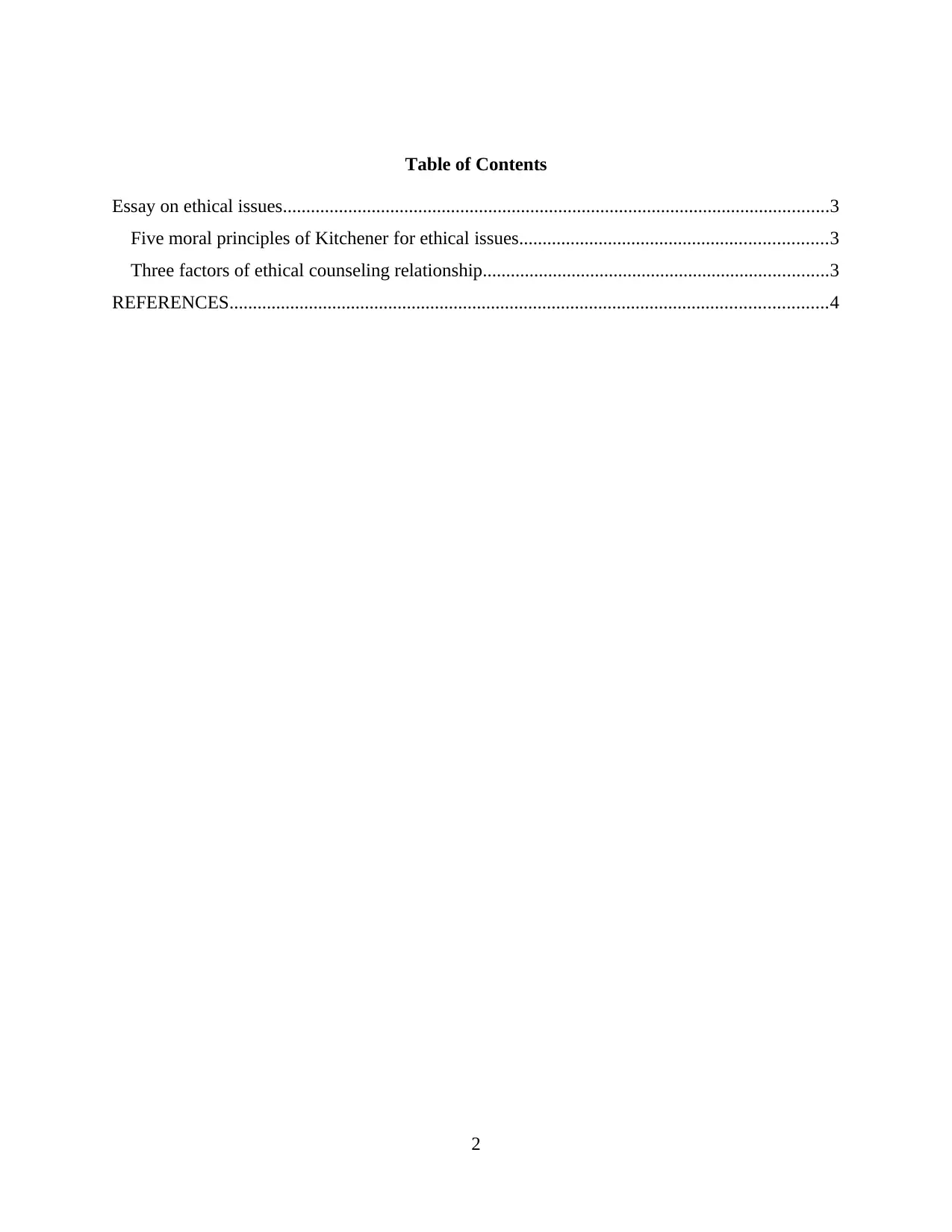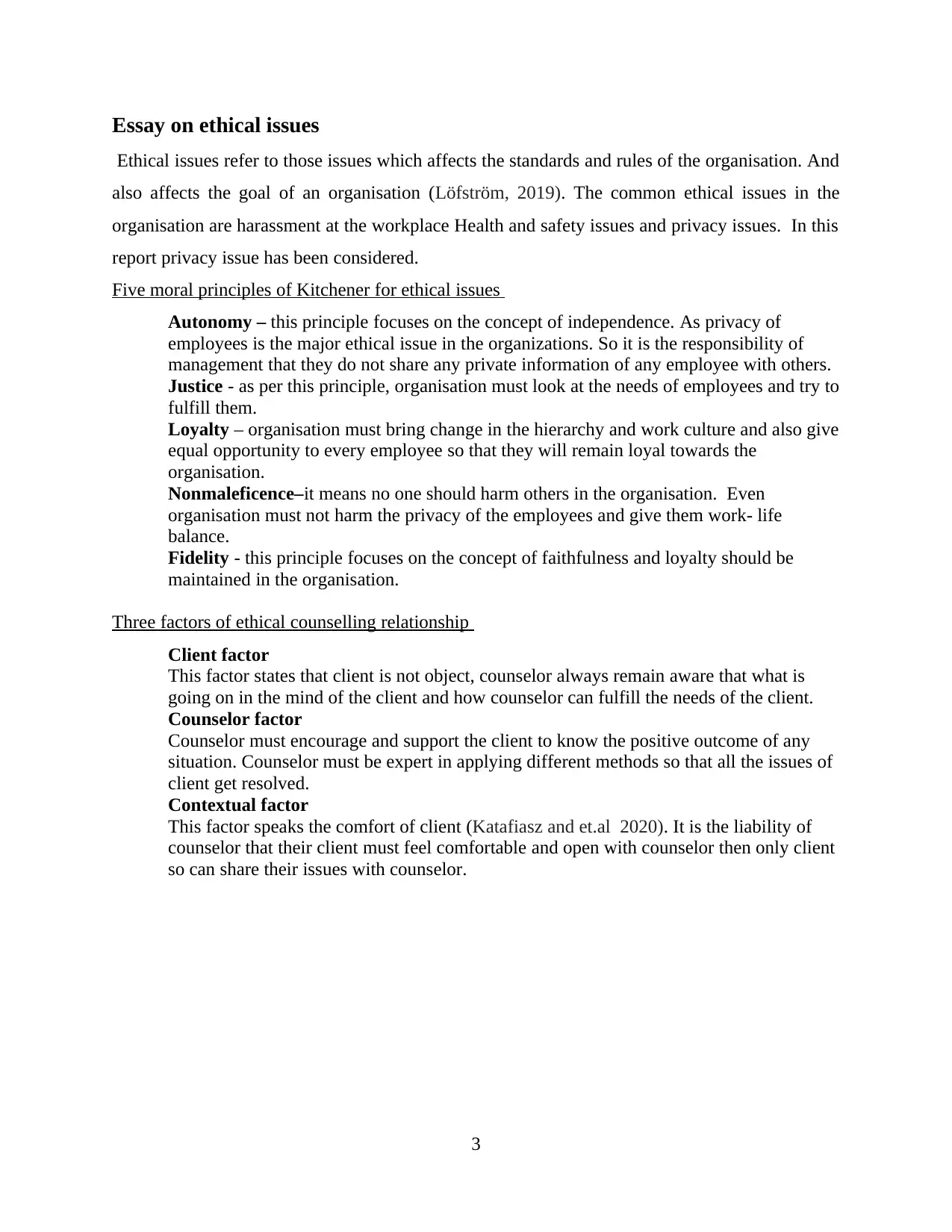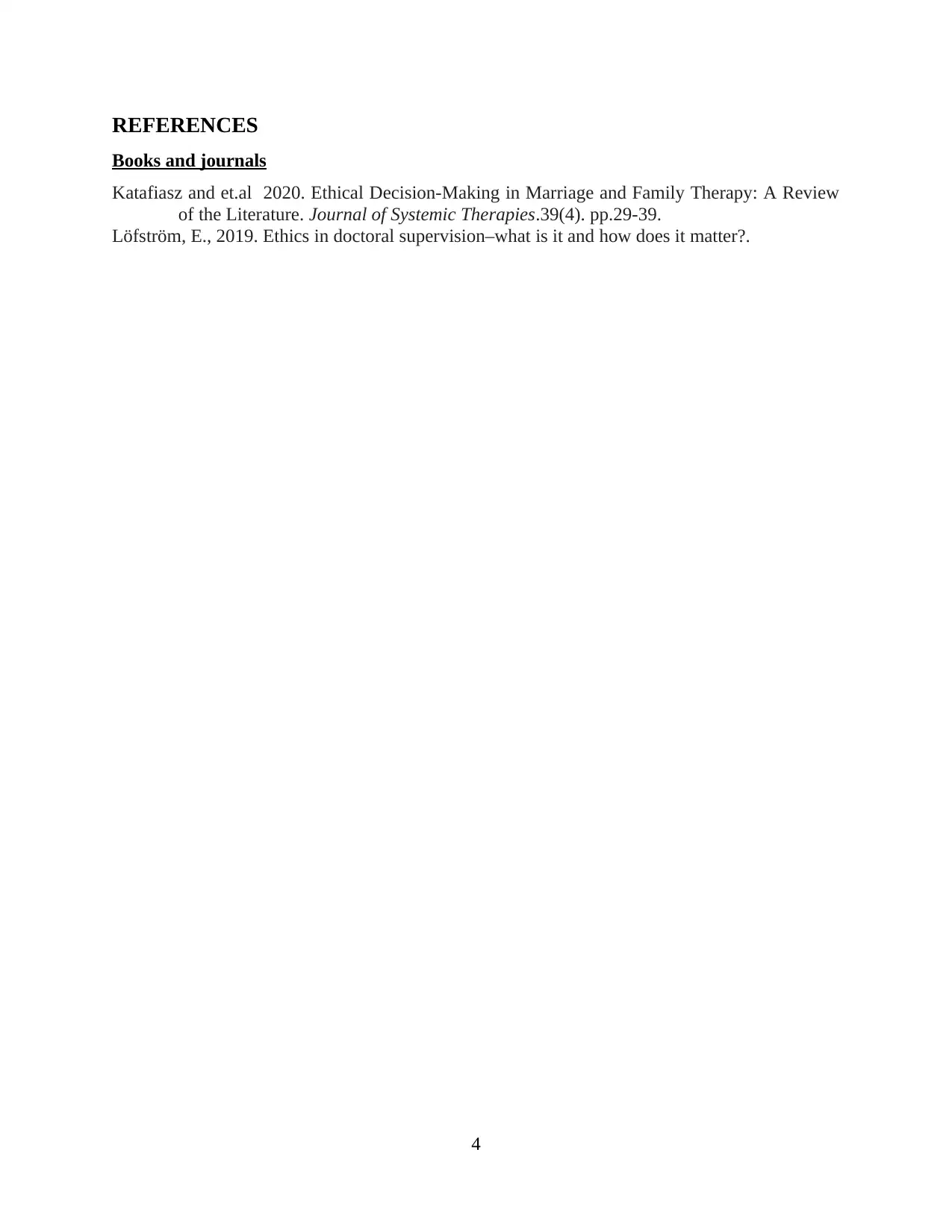Ethical Issues, Principles, and Relationships in Counselling
VerifiedAdded on 2022/12/14
|4
|425
|59
Essay
AI Summary
This essay addresses ethical issues in counselling, focusing on the application of Kitchener's five moral principles: autonomy, nonmaleficence, beneficence, justice, and fidelity. It examines how these principles can be used to navigate ethical dilemmas, particularly those related to client confidentiality and privacy within an organization. The essay also explores three key factors in establishing an ethical counselling relationship: the client factor, which emphasizes understanding the client's perspective; the counselor factor, highlighting the counselor's expertise and support; and the contextual factor, which considers the environment and comfort of the client. The essay references relevant literature to support its arguments.
1 out of 4







![[object Object]](/_next/static/media/star-bottom.7253800d.svg)